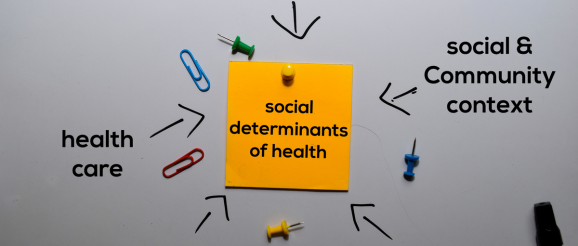UnitedHealthcare Expands Use of Predictive Analytics for SDOH to Commercial Plans | Healthcare Innovation

UnitedHealthcare is expanding its use of predictive analytics to address social determinants of health to some employer-sponsored benefit plans.
In 2019, Healthcare Innovation gave UnitedHealthcare one of its Innovator Awards for implementing a program incorporating social determinants of health data into clinician workflow processes in order to improve care management and enhance plan members’ health.
In a 2019 interview, Bill Hagan, president of UnitedHealthcare Clinical Services, explained, “As we started working with our Medicare population and expanded the work into our Medicaid population, we saw that the social determinants, including around housing, poverty and nutrition, were very important in all this. A lot of reasons people aren’t medication-adherent or aren’t getting to their dialysis appointments; and there are major issues around homelessness and financial income factors. At a very high level, that’s what’s driving us to try to be better at really helping people improve their health, and making the system better.” As a result, Hagan explained, the team began several years ago to lay the foundations for this program and others.
The insurance giant has made several investments in helping address social determinants of health, including providing more than 1 million referrals to important social services and contributing over $500 million to support affordable housing for people across the country. In addition, UnitedHealthcare previously collaborated with the American Medical Association to develop ICD-10 codes to more precisely diagnose social determinants of health. Building on similar initiatives for UnitedHealthcare Medicare and Medicaid beneficiaries, the new capability adds the use of predictive analytics to help identify people in need of support related to social determinants of health. The resource is available to employers that select UnitedHealthcare’s Advocate4Me Elite or Advocate4Me product offerings, with plans to introduce a customized version for employers with fully insured health benefits later this year.
The new advocacy capability uses de-identified claims data from UnitedHealthcare members to proactively identify who is most likely to need support with social determinants of health, such as access to nutritious food or affordable housing. UnitedHealthcare call center advocates then use real-time interactions coupled with a curated database of community resources to help individuals dealing with challenging life events or circumstances.
Developed in collaboration with subsidiary Optum, the capability can help employers predict the likelihood that their employees may have a need for a social intervention, assessing more than 300 markets across the country and analyzing over 100 metrics, UnitedHealthcare said. By combining this information with the employer’s aggregate claims data, employers can design and implement healthcare strategies that are more responsive to challenges their employees may face and proactively identify the need for support.
“UnitedHealthcare is in a unique position to help improve people’s health and well-being by addressing social determinants of health,” said Rebecca Madsen, chief consumer officer, UnitedHealthcare, in a statement. “With COVID-19 highlighting the need to help close the gap between health care and access to services that contribute to well-being, UnitedHealthcare has incorporated social determinants of health into our advocacy service model, providing people with important support as they navigate the health system.”
The targeted support model is intended to engage and assist people by helping reduce or eliminate barriers to well-being, diminish out-of-pocket consumer costs and avoid potential expenses for employers. UnitedHealthcare call center staff are trained to listen for key words, such as “I’m hungry,” “I’m having trouble making ends meet,” or “I’m stressed,” and then proactively connect the individual to low- or no-cost community resources. Through the capability, UnitedHealthcare helps people:
• Find access to nutritious meals, such as through local food banks.
• Obtain internet or smartphone access, such as through financial subsidies offered by telecommunications companies.
• Find local support groups, including for continuing education and mentoring.
• Obtain assistance for rent/mortgage, child care or utility bills.
The recommended resources have been evaluated and vetted as providing quality, cost-effective services. Since introducing the capability, eligible individuals have accepted over 50 percent of the offers for support.
